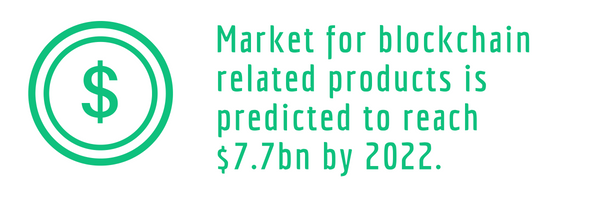The blockchain is touted as the most significant technological innovations that have already captivated a good chunk of major industries. There has been an exponential growth in the adoption of blockchain technology in the past few years.
Yes, blockchain is a groundbreaking technology as most of the marketers state it to be, but still, it has a long way to go. We have already heard a lot about what is blockchain and how it is changing the market trends.
Now it is time to understand the significant challenges of blockchain industry.
1. Scalability:
The ability to manage a large number of users at a single time is still a challenge for the blockchain industry. Blockchain technology involves several complex algorithms to process a single transaction. As of October 2017, the total number of coinbase users is recorded to be 11.7 million. As more and more people are getting used to it, the average transactions have also increased dramatically. It severely hit the processing speed of the transactions as a higher number of people implies more computers writing and accessing the network creating an overall cumbersome system.
2. Hackers and shadow dealing:
The one thing that the blockchain industry lacks is a set of regulatory oversight making it a volatile environment and an easy target for market manipulation. For instance, the infamous one coin scam where a lot of investors lost money thinking it to be the next revolutionary digital currency was revealed to be a Ponzi scheme scam. No matter how good you are with your cryptocurrency understanding, there is always a chance that the online wallet you are using may get hacked or be blocked by the government due to some shadowy practices.
3. Complex to understand and adopt:
Blockchain technology and the complexities it involves makes it hard for a layperson to understand and comprehend its benefits. Before diving into this revolutionary application, one needs to read it through and understand the principles of encryption and distributed ledger. Another point that makes blockchain hard to adopt is that financial institutions are adequate to provide secure payment gateways and other services at affordable prices compared to the costs incurred with blockchain.
4. Privacy:
Blockchain is an open ledger which is visible for everyone to view. It is an essential aspect in many cases, but it becomes a liability if used in a sensitive environment. Blockchain technology still has to go a long way to be adopted on a broad scale. The ledger needs to be remodeled in a way that allows restricted access and is accessible only to people who are authorized to view it.
5.Costs:
Blockchain is implemented usually for eliminating the expenses related to the third parties and intermediaries involved in the process of transferring values. Though, the blockchain technology is quite beneficial it is still in the nascent stages of innovation making it tough to integrate into the legacy systems. It makes it an expensive affair overall preventing its adoption by the government as well as private firms.
6. Blockchain is still a distant dream:
The market pundits are going gaga over the blockchain technology, its benefits and how it is re-shaping the infrastructure of emerging technologies like InsurTech and others. But, the truth is that the challenges mentioned above are still hard to conquer, and it will take some good time before blockchain becomes an integral part of all the industries.
The Blockchain is an innovative technology but needs a lot of technological advancements. However, technology has an intrinsic property of evolving and can always find a way through any challenges. So, we cannot say that blockchain is going anywhere anytime soon but will take time to revolutionize the technology sector completely.
Knowledge thats worth delivered in your inbox






